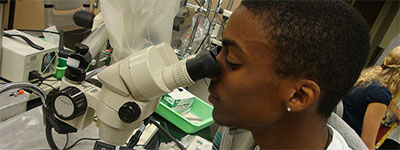Presentation Summaries

PEERs Project: Overview, Accomplishments, and Data
Presenters:
Eve Riskin, Associate Dean of Academic Affairs, College of Engineering
Joyce Yen, Program/Research Manager, UW ADVANCE
Priti Mody-Pan, Deputy Director, Center for Workforce Development
Laura Collins, President, Center for Research and Learning
PEERs aims to improve the experiences of underrepresented students in the UW College of Engineering, resulting in the increased participation of women, minorities, and people with disabilities. PEERs is also interested in increasing the participation of individuals with low-income backgrounds or who are LGBTQ (lesbian, gay, bisexual, transgender, questioning). The project is led by partners in UW's ADVANCE Center for Institutional Change, DO-IT, the Center for Engineering Learning and Teaching, and AccessSTEM.
PEERs project objectives include:
- raising awareness of unconscious and implicit biases toward underrepresented students
- promoting actions that both majority and underrepresented students and faculty can take to counteract these biases to cultivate a more welcoming and supportive climate
- cultivating change agents among both student and faculty bodies
- building a foundation and collaboration mechanisms for future efforts to make STEM and other campus programs welcoming and accessible to underrepresented students within the College of Engineering
Over the course of the project, PEERs has promoted student-level interventions, including an annual fall quarter seminar (ENG 498C) on diversity in engineering. The PEERs seminar covers topics that include demographics within engineering, the importance of diversity, personal stories of individuals, how to be an ally, implicit bias, and privilege. At the end of the course, students present to an audience from across campus. A small group of students in this class form a group of PEERs Leaders, who are a peer-to-peer workforce of students who lead presentations and panel discussions on these topics on campus and beyond. PEERs Leaders are students who have taken the seminar class and are interested in continuing to engage with the project. Eighteen students have participated as PEERs Leaders through in-person and virtual outreach activities. They have given over thirty presentations, reaching over 600 people in classes, at conferences, and meetings for staff and faculty.
PEERs has also led campus-level interventions, including the development and implementation of a campus-climate survey that allows departments to be compared with respect to climate for specific under-represented groups. PEERs also conducted two capacity building institutes and continues to engage online through a community of practice to help diversity initiatives connect with one another, and cross-pollination of other NSF-funded efforts. Through these activities, PEERs served to create better relationships among diversity-related groups on campus who often knew about each other but weren't actively engaged with one anothers work.
In the spring of 2013, PEERs administered a climate survey that closely mirrored one that was administered earlier in the project in order to measure change. The survey was sent to students in thirty-three majors (n=10,880 students). 1141 students responded, for a response rate of 10%. The data will be used to compare changes in the attitudes of students who are engineering majors to changes in students in other academic areas over time. Preliminary findings indicate that 9% of all respondents had heard of PEERs. 48 students responded to "Please describe in what ways PEERs has changed your personal awareness of diversity issues..." Responses include:
- Not really (n=26; 54%): "I have only heard the name before - I don't actually know what PEERs is."
- Deepen understanding (n=7; 15%): PEERs has caused me to be more aware of how my experiences in engineering may be shaped by my gender and has provided me with tools to overcome setbacks related to this."
- Awareness-raising (n=7; 15%); "More aware of disparities in education and opportunity."
- Take action/change agents (n=6; 13%): "Each person within the community has a responsibility to understand and get to know other cultures. If this is done, then we will have a stronger community within the UW. Not to say that we do not already, but it can only help to improve."
- Other (n=2; 4%); "I feel very welcomed at UW, which contrasts previous academic experience. I don't feel like an outlier. I love UW."
A complete report on the findings is forthcoming. Each department included in the survey will also receive a report with findings specifically relevant to their students.
Evaluation findings indicate that PEERs has had many positive effects at the UW.
| PEERs Program Component | Raise Awareness | Cultivate Change Agents | Promote Action | Build Foundation |
| PEERs Seminar |
|
|
Increasing numbers of PEERs Leaders selected from seminar each year. |
|
| PEERs Leaders |
|
|
|
|
| Capacity Building Institutes |
|
|
|
|
| Climate Survey (2010) |
|
|
|
|